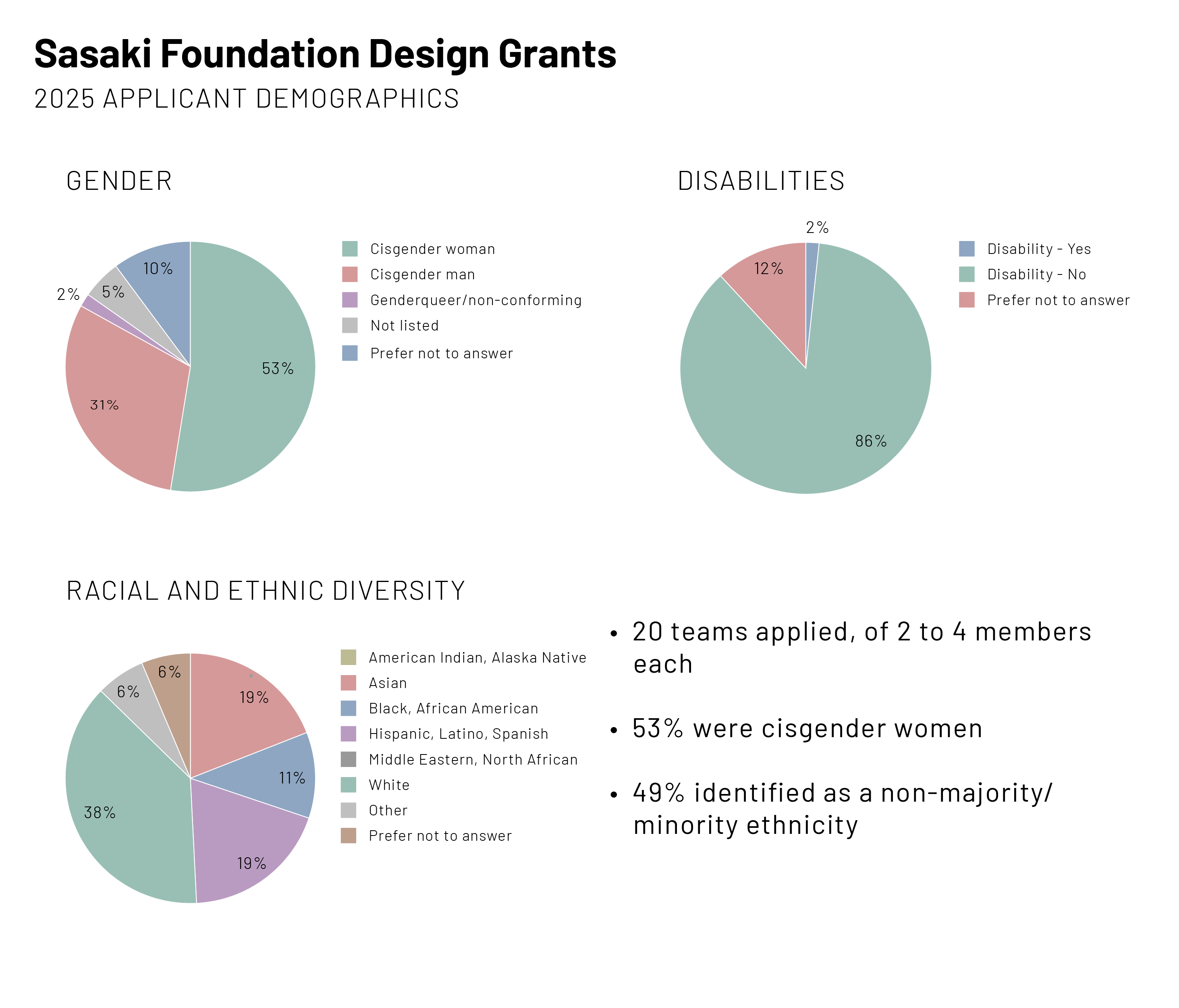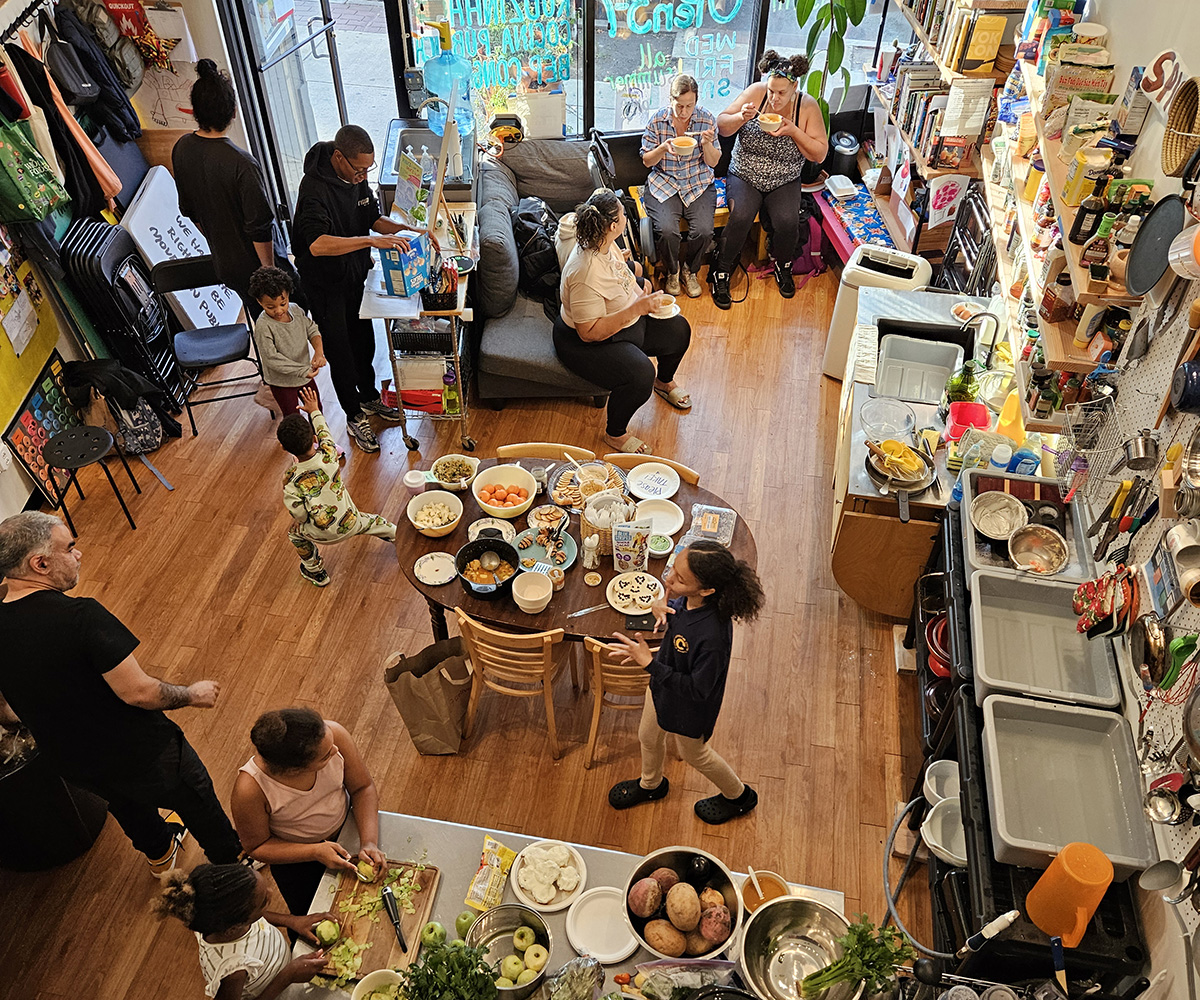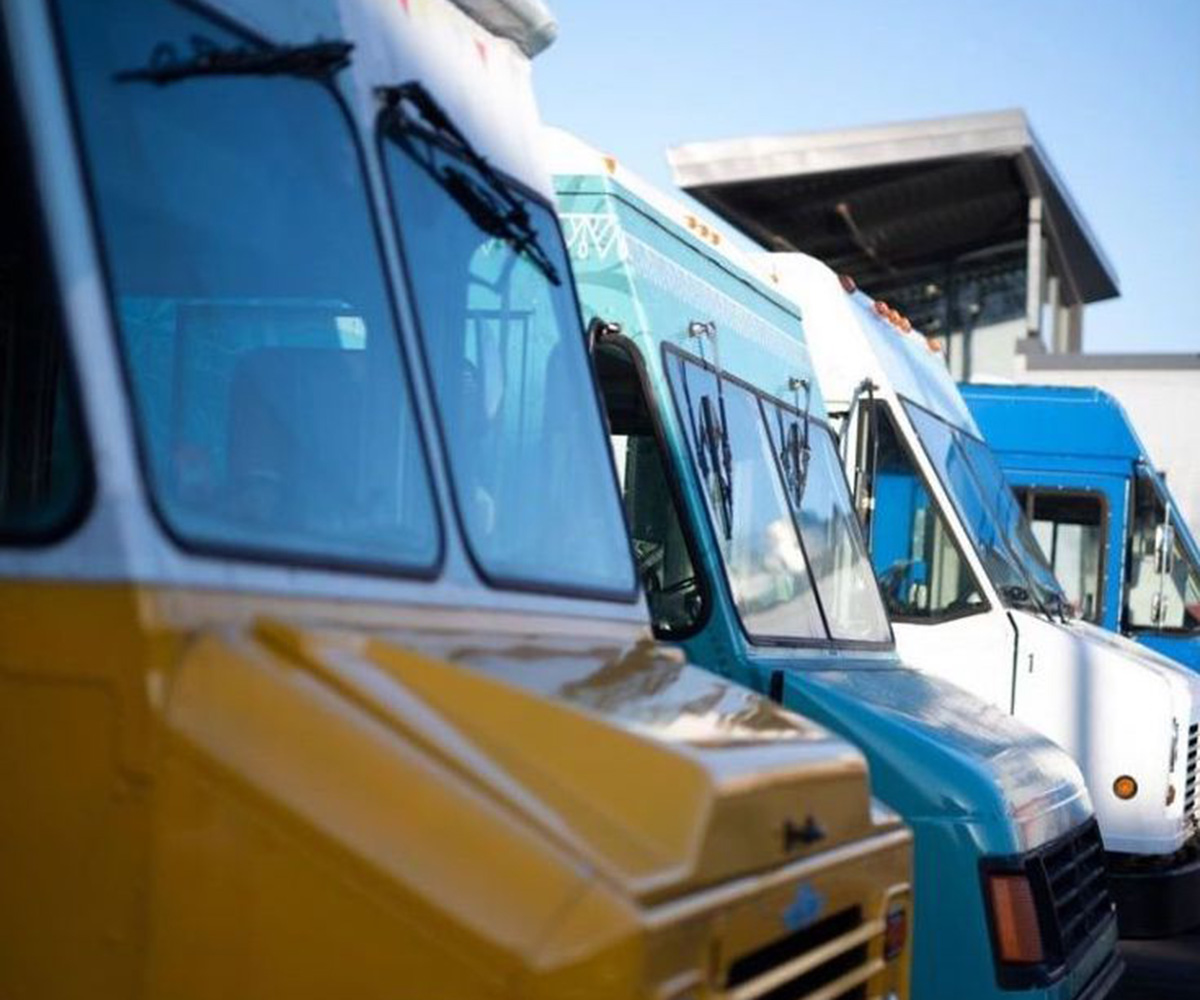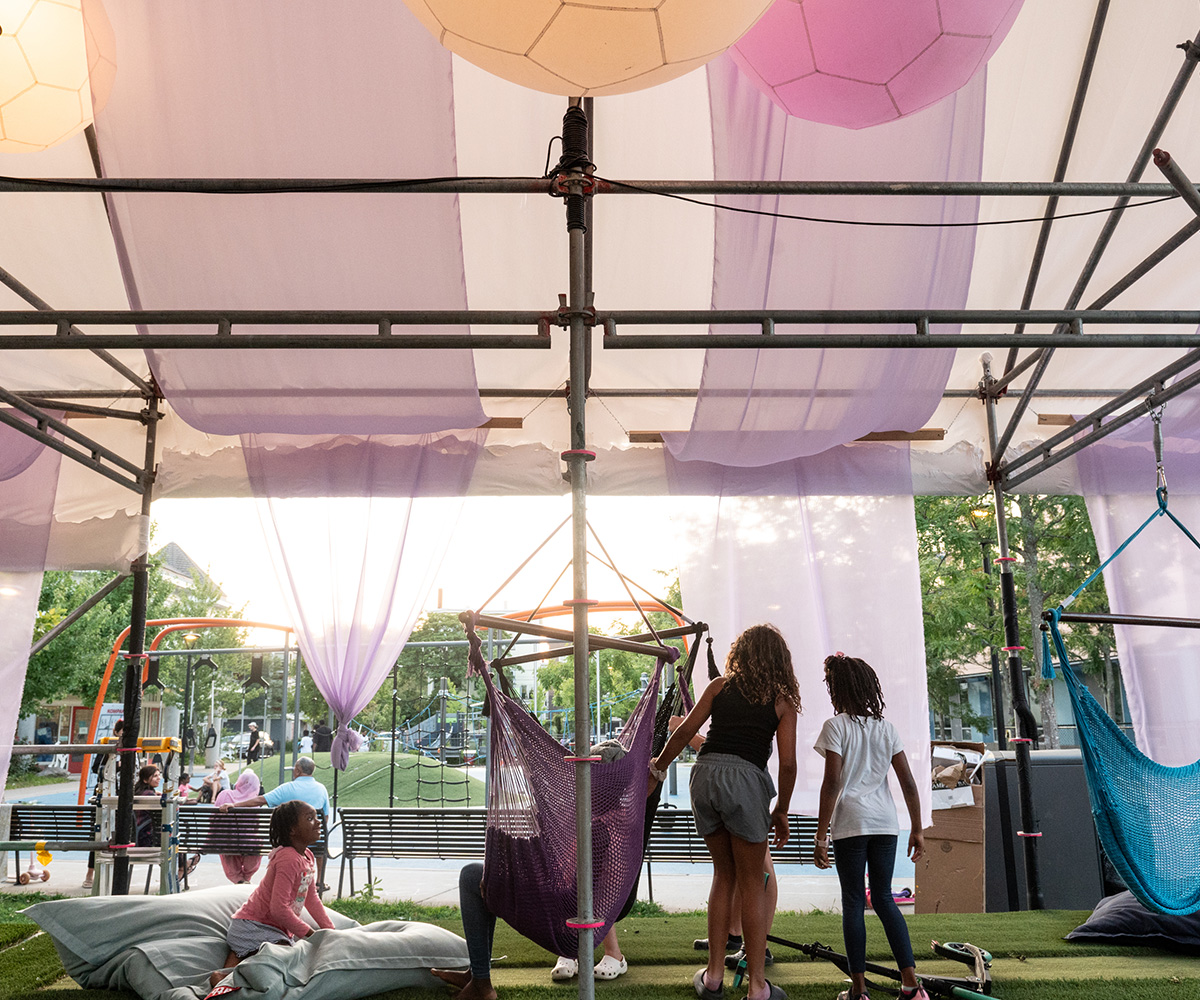2025 Design Grants winners
Dorchester, Roxbury, and Cambridge, MA
Sasaki Foundation
Grants Process
In 2025, we launched a call for proposals for our seventh annual Design Grants competition. We received 20 applications representing 40+ organizations and institutions, 8 Boston communities, 2 Greater Boston cities, 3 Massachusetts Gateway Cities, and multiple proposals focusing on Greater Boston.
Explore the 2025 winners and finalists below. Learn more about our 2025 call for proposals here.
A special thanks to our 2025 jurors for all their time and effort supporting the Design Grants program this year: Timothy Gale, Jury Chair, of Sasaki, Eudad Gonzalez of Turner Construction Company, Nigel Jacob of New Urban Mechanics Labs, Liz Luc Clowes of the Boston Food Forest Coalition, and Julia Wallerce of the Metropolitan Area Planning Council.
Charting a Course for Community Action
The challenges in addressing environmental resilience, displacement, affordable housing, access to mobility choices, meaningful public engagement, and other social equity considerations in planning and design are so broad and complex, they require a shared approach to facilitate all the necessary conversations and deliver actionable solutions. Most of these challenges faced by Massachusetts communities are not limited to local neighborhoods—their effects are felt and shared across the Commonwealth and beyond. Multiple futures are at stake, and we can make a difference by acting now.
The Hideo Sasaki Foundation recognizes the need for interdisciplinary approaches, diverse community voices, and regional cooperation as key drivers to find shared solutions and create shared impact.

Culinary Commons
Creative Community Building
Mark Araujo, Andrea Catania
Culinary Commons from EquiTable Food Systems is an initiative focused on establishing public kitchens as essential community infrastructure to foster food justice and social cohesion in urban areas like Boston. These sites serve as more than just cooking spaces; they are platforms for social change, enabling individuals to connect with their culinary heritage and build community ties. By addressing the lack of accessible venues for food-related gatherings, the team aims to create spaces where people can share meals, engage in culinary activities, and organize for food justice.

Upham’s Corner Public Kitchen in 2024
Photo courtesy EquiTable Food Systems

Food Trucks
Photo courtesy CommonWealth Kitchen
Roxbury Food Truck Park
Courtney Roy Branigan, Oswald Black, Daryl Moore, Akeem Raphael
CommonWealth Kitchen is excited to partner with the City of Boston, Madison Park Development Corporation, and the community to launch the Roxbury Food Truck Park. Roxbury, one of Boston’s historically underserved communities, has limited access to diverse and affordable food options. This initiative will transform underutilized public space along Malcolm X Boulevard to establish a food truck park, increasing access to healthy, culturally inclusive foods while creating economic opportunities for local entrepreneurs.
SHADE
Creative Community Building
Jeff Goldenson, Debbie Bonilla, Matthew Keane, Samadhi Simmons, Eliseu Goncalves
SHADE is temporary, teen-led public art in public parks for public health. Over the next year, the team hopes to transition from a grant-funded organization to a teen-led earned income non-profit by further developing, open-sourcing, and leasing their product, SHADE. SHADE is a safe, affordable, temporary outdoor building system. Their mission is to empower regional teen teams and communities, like theirs, to address the teen mental health crisis by creating new destinations in public parks for teens to hang out, find friends, and make new ones in real life.

SHADE’s Friday Night Hype in Cambridge, MA
Photo courtesy SHADE, Leise Jones Photography
Designing Dignity: Accessibility Interventions in the Cambridge Homeless Meal Program Community
Innovation in Health and Wellbeing
Myoung Joo Chun, Young Bae Kim
Designing Dignity proposes a design intervention to enhance accessibility and dignity within the Cambridge homeless meal program. It focuses on creating an inclusive environment by identifying and addressing barriers that limit access for individuals with physical, cognitive, or emotional challenges.
Hudson Street Stoop
Creative Community Building
Innovation in Health and Wellbeing
Jenny Huang, Christine Nguyen, Robert Chin
Roxbury Cooling Yards
Proactive Approaches to Climate Adaptation
Lily Moodey, Amadeos Oyagata, Alessandra Rodriguez Mercado
The Roxbury Cooling Yards program provides residents living within urban heat islands with accessible, easy-to-use heat mitigation toolkits that encourage communal gatherings and enhance preparedness during periods of extreme heat, all within their preferred outdoor public spaces.
The Artisanal Hub
Creative Community Building
Proactive Approaches to Climate Adaptation
Rashmi Ramaswamy, Kord Jablonski, Beth Lundell Garver, Nathan Polk
The Artisanal Hub community pavilion, constructed from reused materials, provides the local community and makers a creative showcase to explore the artistic potential of reclaimed materials, inspiring collaboration, sustainability, and innovative design that reflects the community’s diverse and creative spirit.
Trans Liberation Coalition
Creative Community Building
Innovation in Health and Wellbeing
Jack Imbergamo, Zachary Deocadiz-Smith, Nora Stolzman
Through art-based engagement activities, the Trans Liberation Coalition will tell the stories of people living in underserved neighborhoods through celebration in art and provide pathways to move forward through a startup guide for events and an official report.
